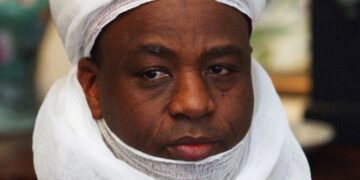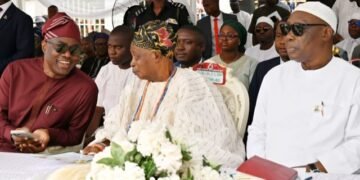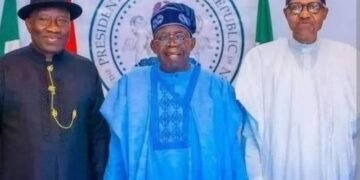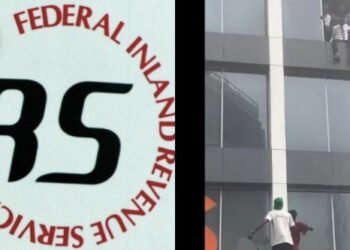I am always worried anytime the former Resident of Electoral Commissioner of INEC, Mr Mike Igini, uses various channels to mislead the members of the public on some of the specific provision of the Electoral Act, 2022. His recent interview on Channels TV on the true import of S 151(d) of the Act deserves a rejoinder, if nothing else, just to set the records straight.
The issue of double candidature in the new dispensation has occupied a focal point, with various interpretations by the stakeholders. While INEC officials and other stakeholders like legislators have interpreted the section that made mention of the phenomenon correctly, Mr Mike Igini, for reasons best known to him, has always given an interpretation that is at variance with the express provisions of the Act.
Before we look at S 151(d) of the Act, the section that sets the stage for S 151(d) is S 35 of the Act. It provides: “Where a candidate knowingly allows himself to be nominated by more than one political party or in more than one constituency, his nomination shall be void.”
Is there any difference between an “aspirant” and a “candidate” under the Electoral Act? Wikipedia defines a candidate in this form:
“In the context of election for public office in a representational partisan democracy, a candidate who has been selected by a political party is normally said to be the candidate of the party.”
S 152 of the Electoral Act 2022 defines a candidate to mean a person who has secured the nomination of a political party to contest an election for any office.What this means is that one is regarded as a candidate of a political party only after the emergence of that person during the primaries. On no account should an “aspirant” be elevated to the position of a “candidate” when he or she is not under the Act.
What is the definition of an “aspirant” as the definition will help to clear every lingering doubt in the mind of anybody concerning the correct position. Dictionary.com defines an aspirant thus:
“A person who aspires, as one who seeks or desires a career, advancement, status etc”.
By these definitions, those who ran for the office of the presidency in Nigeria and lost during the last primaries cannot be regarded as the “presidential candidates” of the party but “presidential aspirants”. The “presidential candidates” that we have today for the three major political parties are Ahmed Bola Tinubu of APC, Peter Obi of Labour Party and Atiku Abubakar for PDP.
Did those who run as “presidential aspirants” contravene Section 35 of the Act by running for another position in the party? The answer is emphatic “no”. Those who ran as “presidential aspirants” did not violate the provisions of Section 35 of the Act as S 152 has defined who is a candidate and who is not.
Someone is a candidate of a political party where he or she has emerged as the winner of the primary and the political party has, in compliance with S 29 (1) of the Act, uploaded the name of that candidate they intend to sponsor to INEC’s portal. This candidate, as described, will therefore fill the necessary INEC Forms properly called Nomination Forms in compliance with S 30 (1) of the Electoral Act. The Nomination Form referred to in S 115 (d) of the Act is the Nominations Forms of INEC and not that of the political parties.
Having said this, a candidate can only be guilty and liable under S 115 (d) if he is liable under S 35 of the Act. For the records S 115 (d) provides; “Any one who signs a nomination paper or result form as a candidate in more than one constituency at the same election commits an offence and is liable on conviction to a maximum term of imprisonment for two years.”
The right question to ask and for which answers are provided herein are as follows: Can a person not defined as a candidate and not liable under S 35 of the Act be convicted of an offence under S 115 (d) of the Act?
The answer is that the intention and logic of the Act has to be understood appropriately. If you are not a candidate under the Act, you cannot by law be held liable for civil consequences under S 35 of the Act. Therefore that person cannot coherently be held guilty of the alleged wrong that is not defined to be applicable to that person in the Act under S 115 (d) of the Act.
The Electoral Act has defined who is a candidate and who should be held liable for any breach of the provision of S 35 of the Act. Therefore it is logical that the person the law will hold criminally liable for flouting the issue of double or multiple candidacy is the person the law has so defined in S 152 of the Act as a candidate.
I am at a loss anytime Mr. Mike Igini turns the law upside down, all in a bid to defame certain persons he so much dislikes. It is even more appalling that he assumes the position of Mr. Know-It-All on the provisions of the Electoral Act of 2022.
He tries to rubbish any opinion that does not tally with his hidden agenda.
May we remind Mr Mike Igini that what he is misquoting is a subject of litigation at the appellant courts presently and therefore subjudice. It is therefore appropriate for him to desist from misleading the public through his reckless utterances.
The Nigerian Bar Association (NBA) and the judiciary are enjoined to call Mr Mike Igini to order for him to refrain from further misleading the public on the provisions of the Electoral Act especially S35 and 115(d) of the Electoral Act, 2022.
A word is enough for the wise.
•Udom writes from Abuja.




























